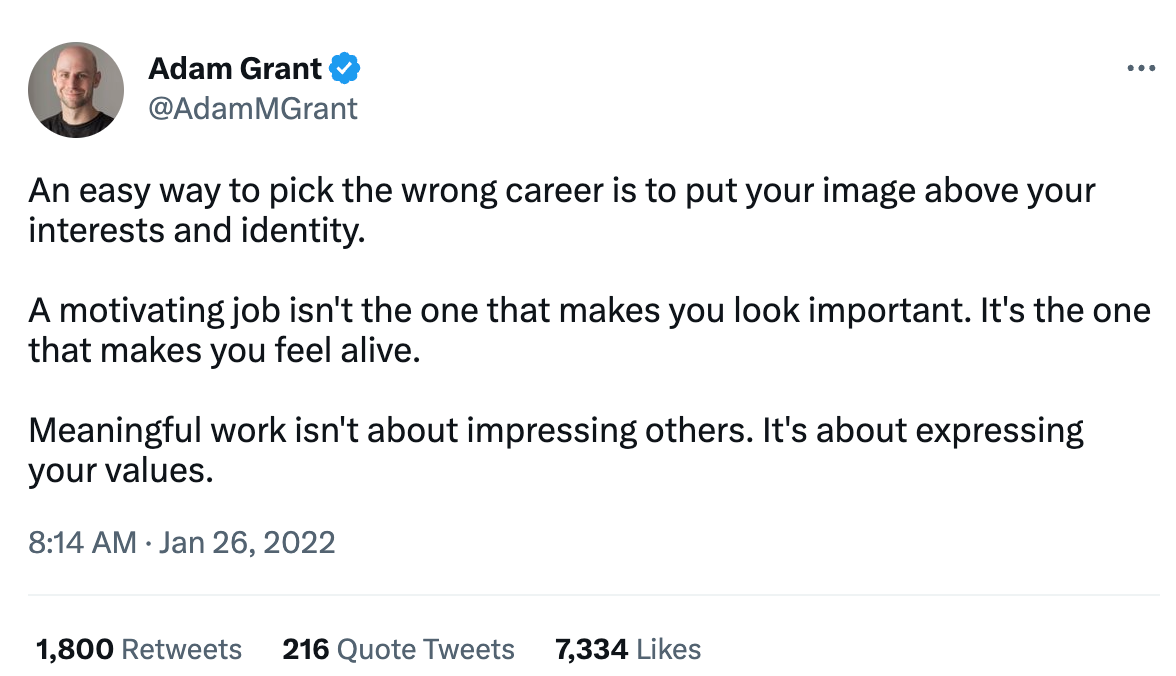Joy
Hi! I’m Molly. I write about what it actually takes to lead inside growing, changing companies: the frameworks that help, the honest truth about what it feels like, and the messy work of shaping a career that actually fits.
Lessons is where those ideas live — both the writing and the conversations around it. (If you want to learn more about how Lessons and the community work, you can read more here.)
I’ve been on a journey for the last year and a half. If I were to summarize that journey, I’d say that I have been focused on trying to marry my work with one word: Joy.
I think for the previous 15 years, I was focused on words like Accomplishment or Useful or Valuable. I wanted to feel those things. Something shifted about 5 years ago, and since then, I’ve been on a journey to find a different relationship with work. At some point, I settled on the word Joy as a north star.
It sounds kind of crazy, I know. Joy? At work? I mean, if you think about it, how many people in your life are truly joyful about their work?
To answer that question, you have to define the word joy.
Here’s the definition I’ve come up with: Joy at work is when you would do the work regardless of whether someone paid you. You would do it even if no one was noticing you or your work. It is something you would do anyway in your free time or if someone gave you a week off. You would do it out of love. Out of joy.
I stumbled on this definition by watching my brother who has always been sure of what he wanted to do (at least it seemed like it to me, his younger sister). He works in Hollywood as a writer, director, and showrunner. At various times in his career, I’ve encouraged him to take a break and rest, and the fascinating thing to me is that his version of a break is writing a screenplay. You cannot stop him from creating stories — it is what he loves to do. I know for sure he would do it if no one was paying him. I have always found it inspiring.
Another definition is in this post by Adam Grant:
A job that makes you feel alive.
How many people do you know who truly feel that way about their work?
I have been able to come up with three people and two maybes including my brother. Out of all the people in my life, I can only think of three people that I know would keep doing what they were doing regardless of whether they were making money doing it. How many can you think of?



